Education at the Edge: Global Challenges in the Classroom and Beyond
10 a.m.-12 p.m. CST Tue, 07/18, Wed, 07/19, Thu, 07/20
Location: Zoom: To register click here.
The Illinois Global Institute is pleased to announce the IGI Summer 2023 Global Educator Workshop. This workshop features three days of round-table discussions around the context of world languages and area studies with the theme of “Education at the Edge: Global Challenges in the Classroom and Beyond.” K-12 educators from around the world are encouraged to attend any and all of the events listed in the forthcoming workshop program. Illinois K-12 educators are eligible to receive ISBE Professional Development Hours (PDH).
This annual event is sponsored by the Illinois Global Institute; Center for African Studies; Center for East Asian and Pacific Studies; Center for Global Studies; Center for Latin American and Caribbean Studies; Center for South Asian and Middle Eastern Studies; European Union Center; Lemann Center for Brazilian Studies; Russian, East European, and Eurasian Center; Women & Gender in Global Perspectives.
NOTE: Illinois teachers can receive up to 5.75 Professional Development Hours (PDH) for attending this workshop. All participants who attend at least 4 hours according to Zoom data will receive an electronic certificate of attendance.
Schedule
Tuesday, 7/18/23: 10:00am-12:00pm CST
10:00-10:05: Introduction
10:05-10:45: Carolynn Bartolotta (Director of Multilingual and World Languages Services, Champaign Unit 4 Schools) "Multilingual Learners in Unit 4)
10:45-10:55: Q&A
10:55-11:00: Break
11:00-11:05: Introduction
11:05-11:45: Roundtable Topic: Banned Books and Politicization of Education
Speakers: Karen Sparks (High School English Teacher, Morton Ranch High School, TX), MIchelle Wohlschlegel (Teacher of Ancient History and History, King Edward VI College, Nuneaton, England), David Eby (PhD Student, Information Sciences, Univerfsity of Illinois Urbana-Champaign), Mirko Labbri (Middle School Math, Science, and STEAM Teacher, Istituto Comprensive di San Fior, Italy)
11:45-11:55: Q&A
11:55-12:00: Day1Conclusion
Wednesday, 7/19/23, 10:00am-12:00pm CST
10:00-10:05: Introduction
10:05-10:25: Dr. Gioconda Guerra Pérez (Executive Associate Vice Chancellor for Diversity) “Implications of Current Global Migration in Our Local Communities”
10:25-10:45: Mario Perez (Director of the International Newcomer Center; PhD student in Education Policy) “International Newcomer Center, new challenges and shifting needs re: services provided to ELLs, refugees”
10:45-10:55: Q&A
10:55-11:00: Break
11:00-11:05: Introduction
11:05-11:45: Roundtable Topic: ChatGPT in the Classroom
Speakers: Akash Saini (Graduate Teaching Assistant & PhD Student, Education Policy, University of Illinois Urbana-Champaign), Magdalena Brzezińska (Lecturer and Instructor at the WSB Merito University in Poznan, Poland), Ozgu Ozturk (EFL Instructor, Cakmakli Republic Anatolian High School, Türkiye)
11:45-11:55: Q&A
11:55-12:00: Day 2 Conclusion
Thursday, 7/20/23, 10:00am-12:00pm CT
10:00-10:05: Introduction
10:05-10:45: Dr. Joyce E King (Benjamin E. Mays Endowed Chair for Urban Teaching, Learning and Leadership and Professor of Educational Policy Studies in the College of Education & Human Development, Georgia State University) jking@gsu.edu
A Black/Africana Studies Response to Curriculum Bias, Distortion, and Assaults on Heritage Teaching.
Black/Africana history and heritage instruction faces renewed threats at all levels of education in US schools with the rise of white supremacy nationalism’s curriculum backlash. Dr. Joyce E. King presents, The Guardians of Heritage, a cross-national, intergenerational youth civic leadership collaborative’s Black/Africana Studies response to curriculum bias and distortion in academic scholarship that undermine Black youth’s identification with their African heritage, particularly as a result of the way the enslavement of Africans is taught.
10:45-10:55: Q&A
10:55-11:00: Break
11:00-11:05: Introduction
11:05-11:45: Dr. Kendall Deas (Post-Doctoral Fellow in Race, Freedom, and Democratic Citizenship, African American Studies Program and Institute for African American Research, University of South Carolina)
South Carolina’s Education Challenges: Public Education Advocacy in the Palmetto State
11:45-11:55: Q&A
11:55-12:00: Day 3 Conclusion
Speakers
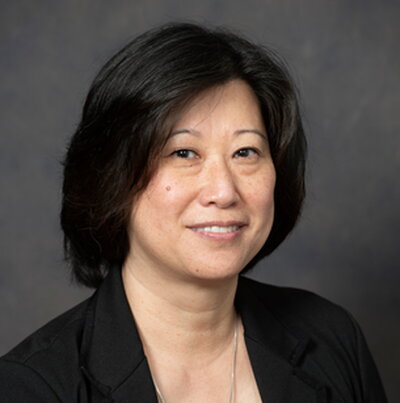
Carolynn Bartolotta is the director of the Multilingual and World Languages Department at Champaign Unit 4 Schools. Her dedication to working with multilingual learners stems from the educators who taught her English upon her arrival as a first-generation immigrant. Her 30 years of experience in education includes classroom teaching, coordinating English language proficiency testing, and being a building and district administrator.
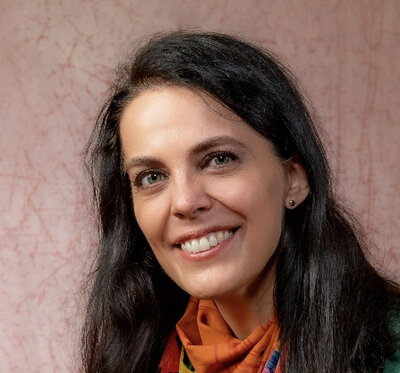
Magdalena Brzezińska is a lecturer and instructor at the WSB Merito University in Poznan, Poland. She collaborates with the British Council and holds a Certificate in Media and Technology for Education from the Harvard Graduate School of Education. She is also a teacher trainer, author, and international conference speaker. Her current research interests include technology-enhanced learning, global skills, and methodologies of teaching foreign languages to immigrant and refugee students.
Her most recent publications include the chapter Into the technology woods: Technology-enhanced project-based learning with teenagers, in English for 21st Century Skills, edited by S. Mavridi and D. Xerri and published by Express Publishing (2020); the article Transatlantic Educators Dialogue (TED) Program for Global Citizenship, co-authored with Vincenza Leone, Ph.D., of the Catholic University of the Sacred Heart in Milan, Italy, and published in Idee in form@zione in March 2021; the chapter Global skills in the global pandemic: how to create an effective bichronous learning experience during a shift to remote instruction in Learning with Technologies and Technologies in Learning (Springer (2022) https://link.springer.com/chapter/10.1007/978-3-031-04286-7_32 ); and the article Emergency Remote Teaching in the University Context: Responding to Social and Emotional Needs during a Sudden Transition Online, co-authored with Edward Cromarty, Ph.D., of the Northeastern University in Boston, USA (Springer (2022)
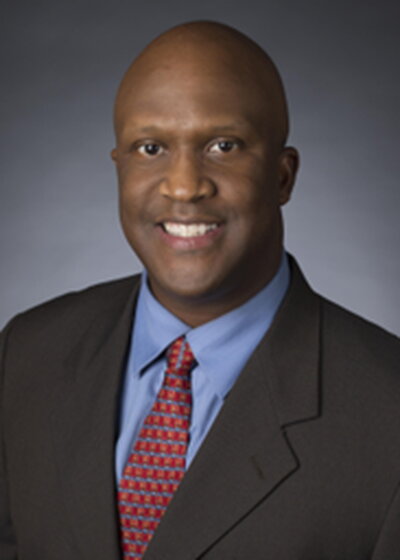
Dr. Kendall Deas is a Postdoctoral Fellow in Race, Freedom, and Democratic Citizenship with the Department of African American Studies and the Institute for African American Research at the University of South Carolina. Dr. Deas specializes in education policy, law, and politics. He received his Ph.D. in education policy and law from the University of Georgia’s Mary Frances Early College of Education. He holds a BSFS degree in international politics and a Certificate in Western European Studies from Georgetown University’s Walsh School of Foreign Service, a M.A. degree in globalization studies from Dartmouth College’s Frank J. Guarini School of Graduate and Advanced Studies, a M.A. degree in political science from Washington University in St. Louis, and a MSPP degree in public policy from the Georgia Institute of Technology’s School of Public Policy. Dr. Deas was an Alfred P. Sloan Foundation Fellow in public policy at Harvard University’s John F. Kennedy School of Government and the University of Texas at Austin’s Lyndon B. Johnson School of Public Affairs. He was a one-year Visiting Student at Mansfield College of Oxford University and is an Emerging Diversity Scholar and New Leadership Academy Fellow in higher education leadership with the University Michigan’s National Center for Institutional Diversity. Dr. Deas is a recipient of the University of South Carolina’s 2023 MLK Jr. Social Justice Award for his research on improving public education and public education advocacy in South Carolina as a co-founder and Director of the Quality Education Project. A Fulbright Scholar to Finland, his research interests are focused upon the politics of PK-12 education reform, eradicating the achievement gap, examining the issue of education reform as it concerns the use of culturally relevant teaching pedagogies, and exploring the transformational capacities of education shaped by policies designed to achieve greater equity and social justice for least advantaged populations.
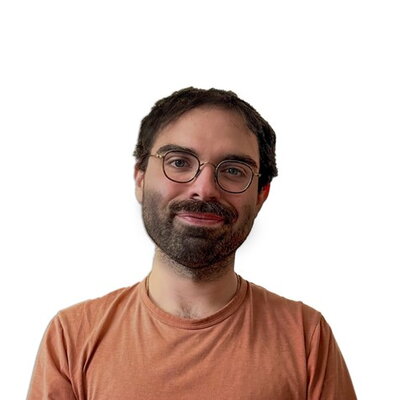
David Eby (MLIS) is beginning his second year of his doctoral degree in Information Sciences at University of Illinois Urbana-Champaign. David hopes to research how Native American and Indigenous Knowledge is conveyed and shared on TikTok, a short format video social media platform. David has taught in public schools and worked in public libraries. David has also worked with research projects funded by the Institute for Museum and Library Services and the U.S. Department of Education. He has interned as a researcher at the United States Geological Survey (USGS) and the Spurlock Museum of World Cultures. He is currently developing an augmented reality (AR) experience at the Spurlock Museum to compliment the newly installed exhibit, Welcome to the Pow-wow: An Intertribal Pow-wow Experience. In the next academic year, David will be a Graduate Student Ambassador at the University of Illinois’ Native American House where he hopes to foster his creativity and cultural knowledge for the advancement of his Native relatives in the Urbana-Champaign and Chicago communities.
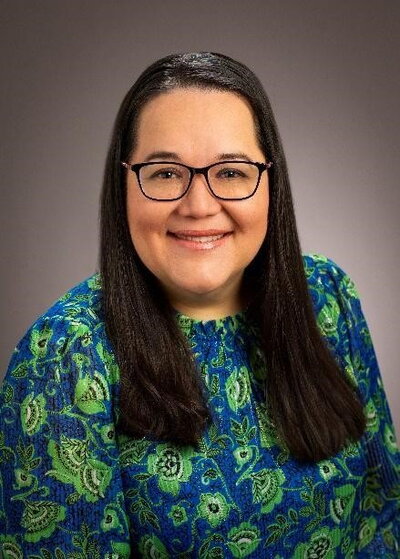
In 2018 Dr. Guerra Perez joined the Office of the Vice Chancellor for Diversity, Equity & Inclusion as Assistant Chancellor for Diversity and Academic Inclusive Excellence. In December 2019, Dr. Guerra Pérez became the Executive Associate Vice Chancellor for Diversity to help lead the DEI work on campus. She is currently the chief executive officer of the Office of the Vice Chancellor for Diversity, Equity, and Inclusion, where she oversees the daily operations of the office. She oversees several areas such as campus culture and climate, campus belonging, education and training, Illinois Scholars Programs, campus diversity initiatives, and serves as the Liaison for Undocumented/DACAmented support services, among others. She works closely with the Office of the Provost and Student Affairs on student success initiatives and programs to increase access to higher education.
Dr. Guerra Perez teaches through campus honors on issues related to immigration and globalization. She is an affiliated faculty to the Center for Latin American and Caribbean Studies. In the past 15 years, Dr. Guerra Pérez has devoted her career to finding ways to remove social, cultural and institutional barriers affecting underrepresented students so they can successfully complete their college education.
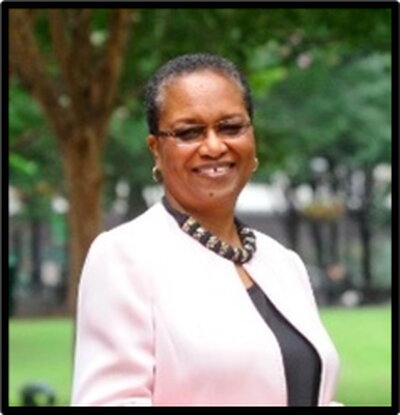
Dr. Joyce E. King holds the Benjamin E. Mays Endowed Chair for Urban Teaching, Learning and Leadership at Georgia State University in the Department of Educational Policy Studies. She is affiliated with the Africana Studies Department, the Women and Gender Studies Institute, and the Urban Studies Institute. Dr. king has served as Provost, Spelman College, held other senior academic affairs positions at Medgar Evers College (CUNY) and the University of New Orleans. She was the founding Department Chair of Ethnic Studies at Mills College and Director of Teacher Education at Santa Clara University. Dr King served on the California state Curriculum Commission, and she is past president of the American Educational Research Association. Widely respected in the fields of urban education and the sociology of education, nationally and internationally, her scholarship has contributed to the knowledge base, on preparing teachers for diversity and Black Studies curriculum theorizing.
She received the Society of Professors of Education William H. Watkins Award in recognition of her contributions to education for liberation in 2022; Georgia State University’s Alumni Distinguished Faculty Award in 2021; and Stanford University’s Graduate School of Education Alumni Excellence in Education Award in 2018. She is the author of nine books and many published papers in prestigious journals: the Harvard Educational Review, the Journal of Negro Education, the Journal of Black Studies, the Journal of African American History, and the International Journal of African Renaissance Studies.
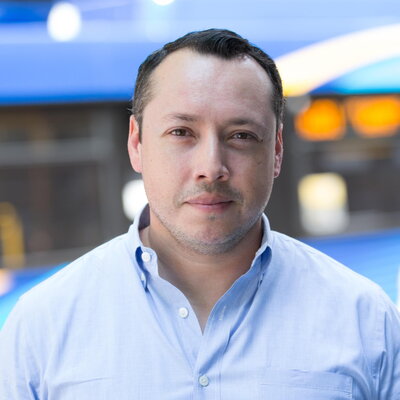
Mario Perez has been an educator for more than 23 years – most of that time working with newly arrived immigrant and refugee students and their families to adjust to a new country and culture and prepare them for success in high school and beyond. In 2002, Mario became a founding member of Illinois’ only self-contained English Language Learner (ELL) program for high school students. In his role as outreach coordinator and lead social science teacher at the High School District 214 International Newcomer Academy, Mario has worked directly with more than 2000 ELL students from over 60 countries, using innovative technology to help them master their new language and communicate together. Mario earned his Master’s degree in Bilingual-Bicultural Studies from DePaul University in 2005, and also holds a Bachelor’s degree in Education from DePaul. Mario is a third-year doctoral student at the University of Illinois studying Education Policy Organizational Leadership with a Global Studies concentration. Mario’s dissertation will focus on the successful integration of immigrants and refugees into host communities. In 2015, Mario traveled to the Republic of Georgia as a Fulbright-Teachers for Global Classrooms fellow, and in the summer of 2018, through Fulbright-Hays, Mario visited the University of Regensburg in Germany to learn about the German educational system with an emphasis on vocational pathways for immigrants and refugees. Mario is hoping to leverage his doctorate, and unique professional experience, into a second career in the humanitarian sector. Mario is passionate about global issues, social justice, and empowering youth to see themselves as agents for change.
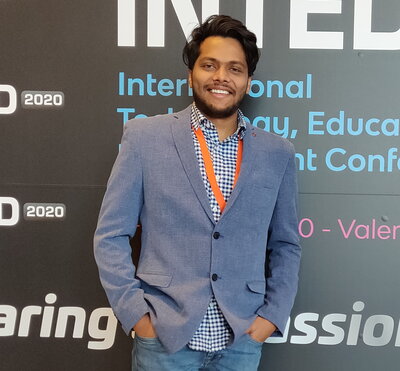
Akrash Kumar Saini is a Ph.D. student in the Learning Design and Leadership Program at the University of Illinois, Urbana-Champaign (UIUC). Prior to joining the Ph.D. program, he worked with organizations and startups focused on leveraging new media and technology for teaching and learning practices as well as policy advocacy for mainstream education. His research and practice focus on developing, designing, exploring, and testing digital tools (such as VR, AR, AI, Games, etc.) to facilitate learning and assessment along with providing specialized instructions, training, and guidance for integrating such technologies into educational practices.
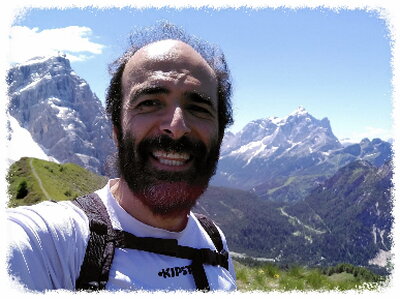
Mirko Labbri teaches math, science and STEAM methods to K6-K8 students in middle school in the North of Italy at the Istituto Comprensivo di San Fior not far from Venice. He has previous experience in teaching in high school, adult education courses and University for a total of 25 years. An enthusiast in applying science and technology in learning contexts, he is ever curious of the pro and cons of new methodologies. He is an active teachers’ trainer, both locally, at regional, and national level as part of the Territorial Training Teams for the Italians Ministry of Education. A Scientix Ambassador, the community for Science Education in Europe, he is a member of the Executive Board of EASE, the European Network of STEAM Educators, actively organising STEAM Summit and Conference.
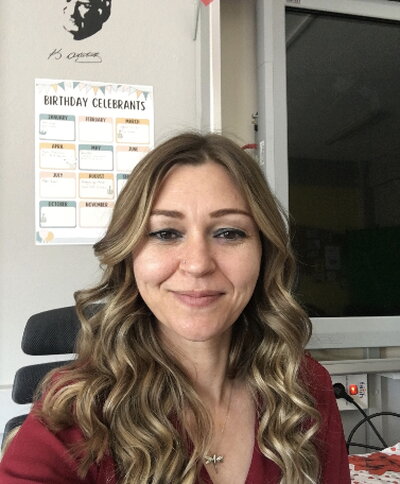
Ozgu Ozturk is an EFL teacher in Türkiye. She has an MA degree in ELT. She conducts educational research on teaching English as a foreign language. She is a STEM trainer, a P4C facilitator, and a dyslexia trainer. She is one of the team members of National Board of Education which provides digital materials for EFL teaching. She is one of two Turkish delegates on TED 2021 organized by the European Union Center and Illinois University at Urbana- Champaign. She writes blogs and articles for some international magazines on different contexts related to EFL teaching.
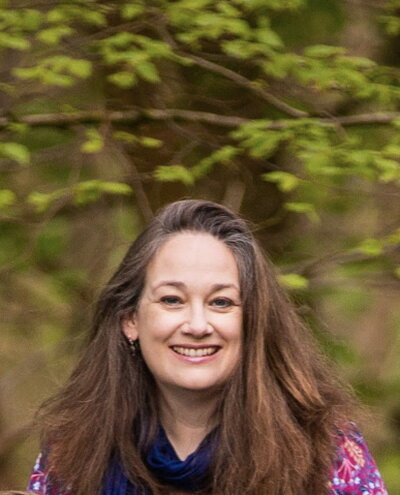
Michelle Wohlschlegel has just finished her fifteenth year teaching History and Ancient History A Level courses at King Edward VI College, Nuneaton UK. In addition to developing these history courses she has previously led courses in Archaeology and Critical Thinking skills. Throughout her teaching career she has led a range of international projects culminating in winning national prizes for E-twinning projects from the British Council and her final student project being shortlisted for a European Award. Prior to teaching in the UK, Michelle worked as a teacher in a high school in Hungary and completed postgraduate work in both the USA and Canada. She has been awarded Chartered History Teacher status by the UK Historical Association reflecting her commitment to ongoing professional development and holds an MA Education specialising in teaching and learning